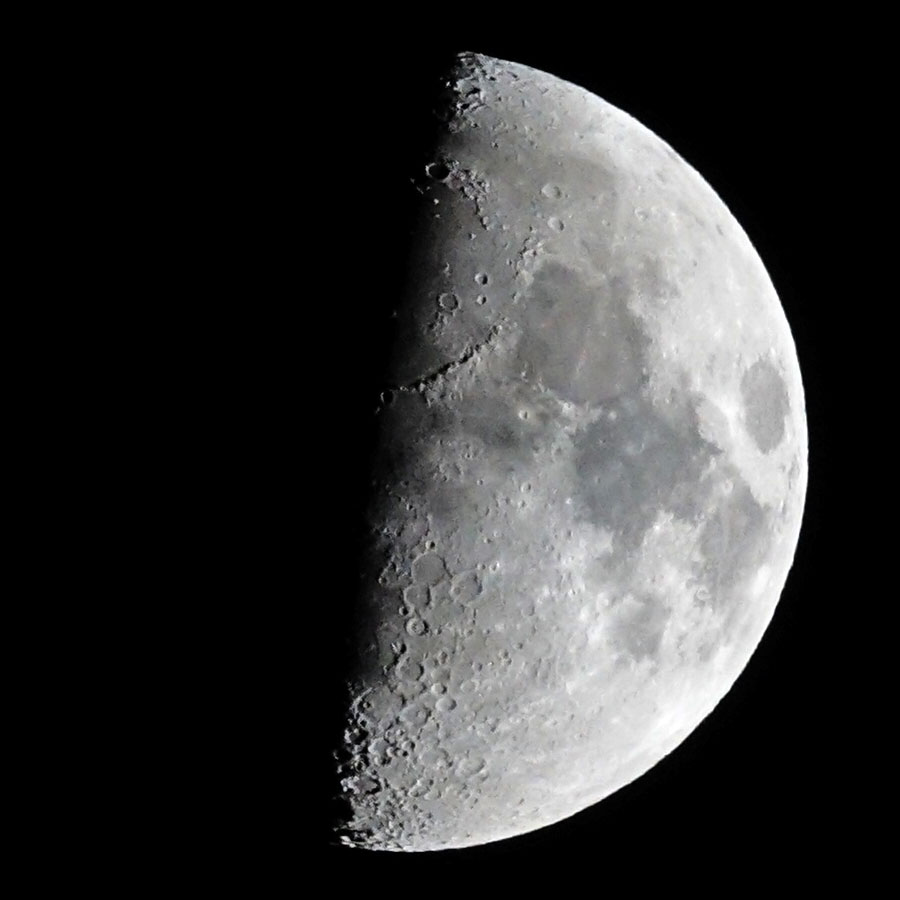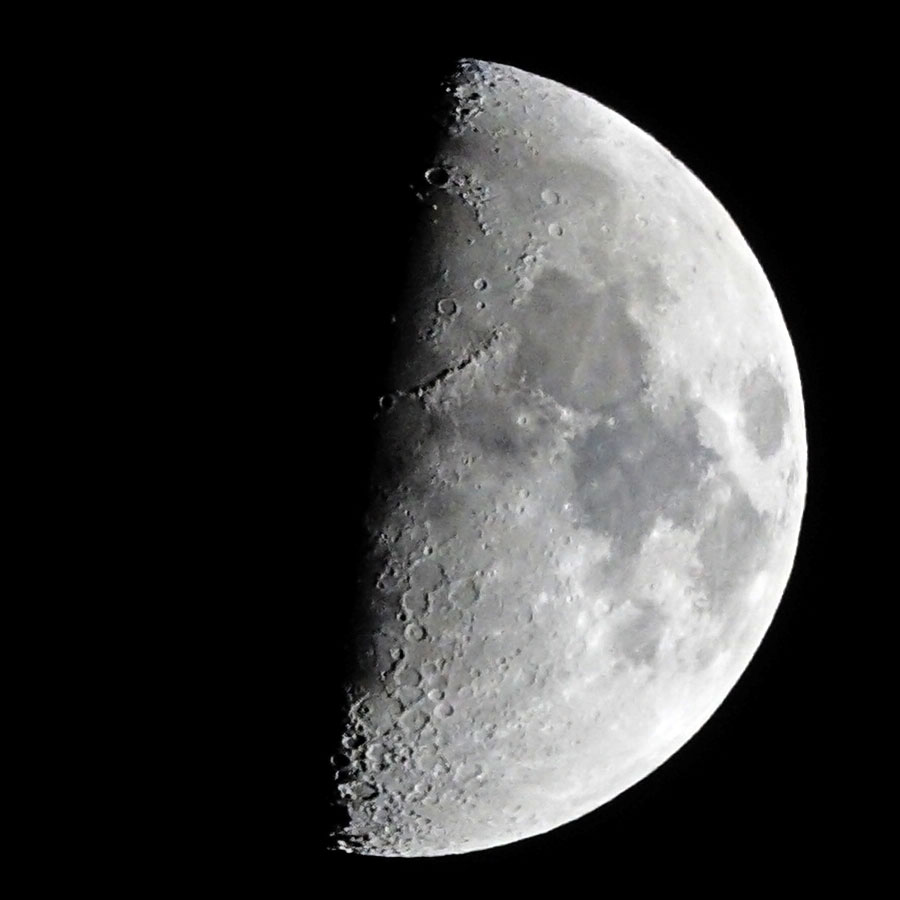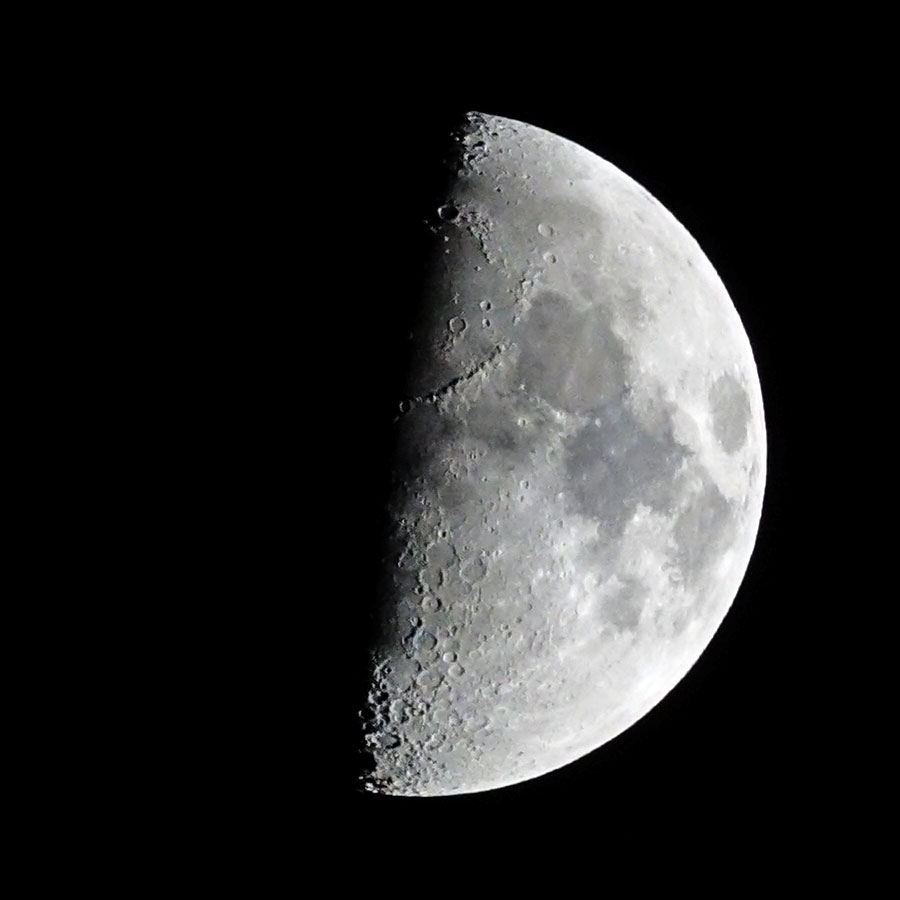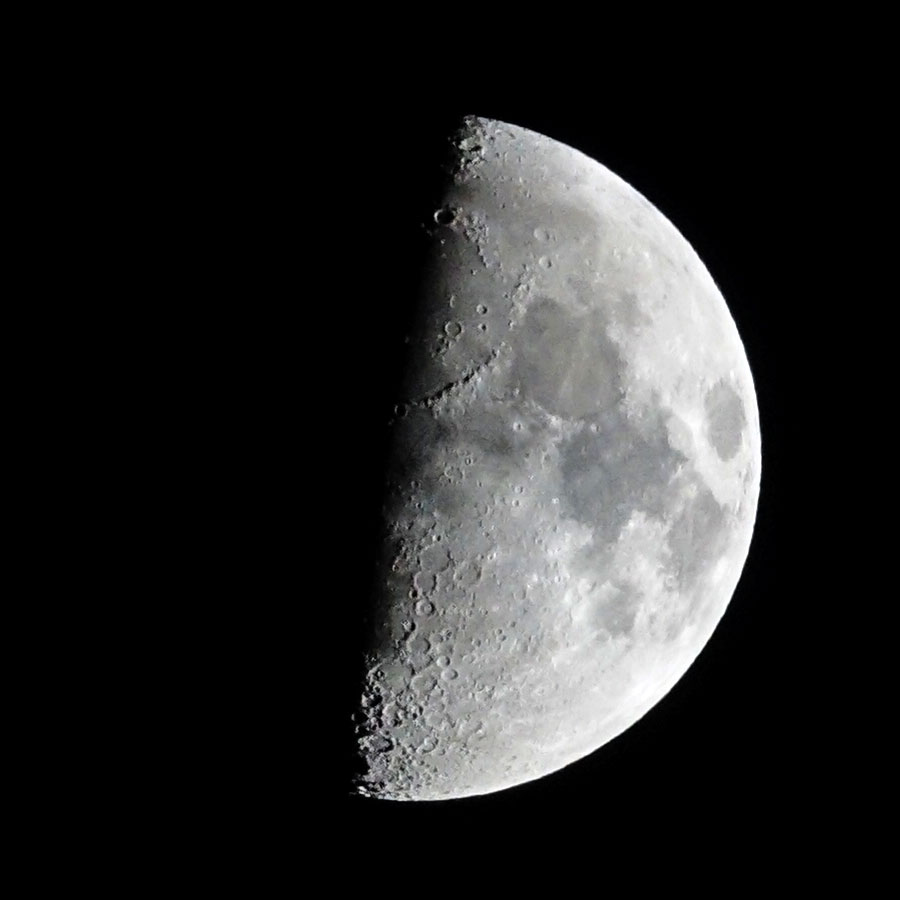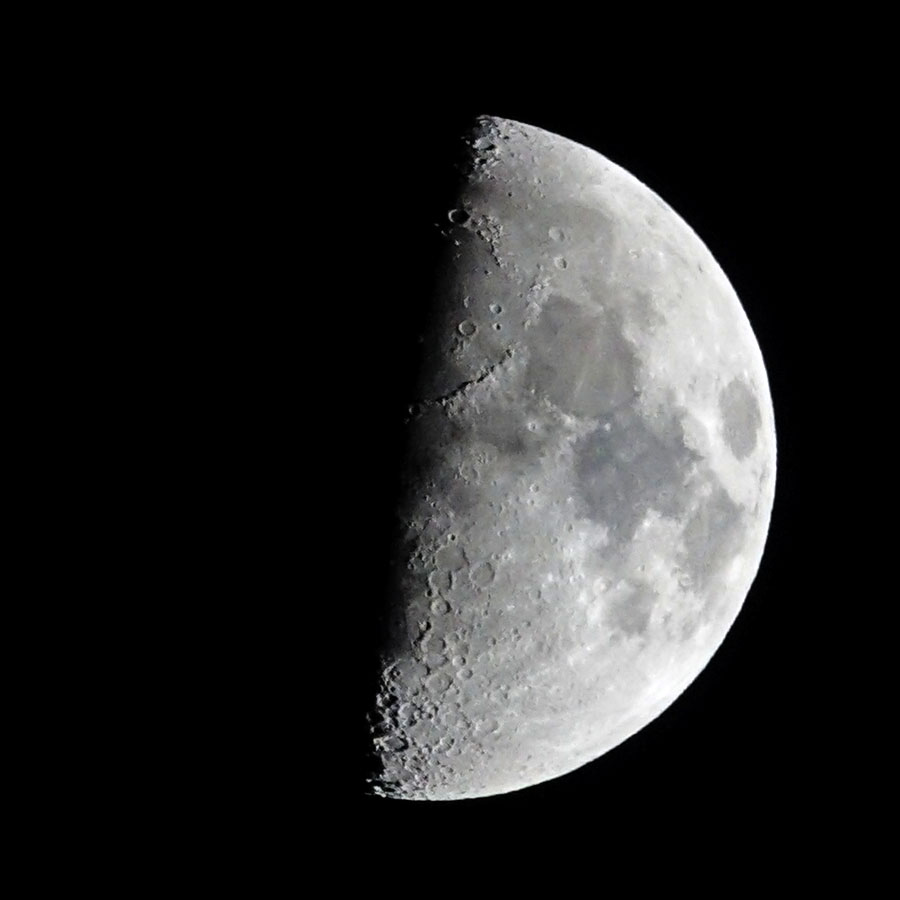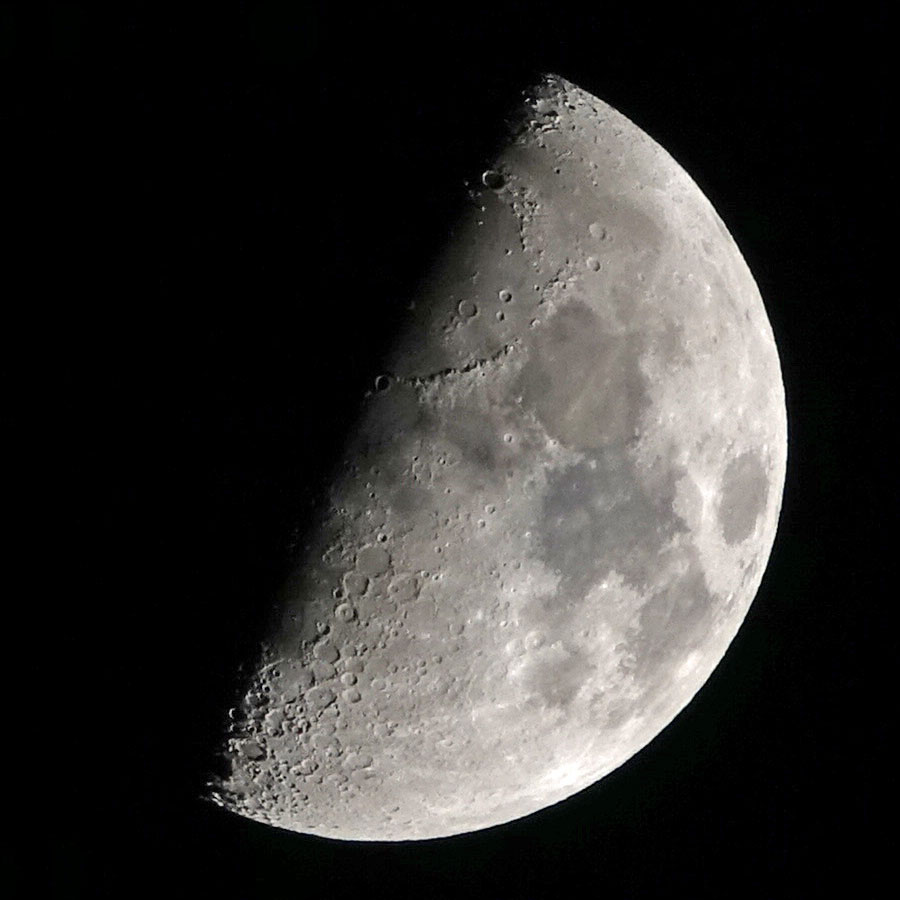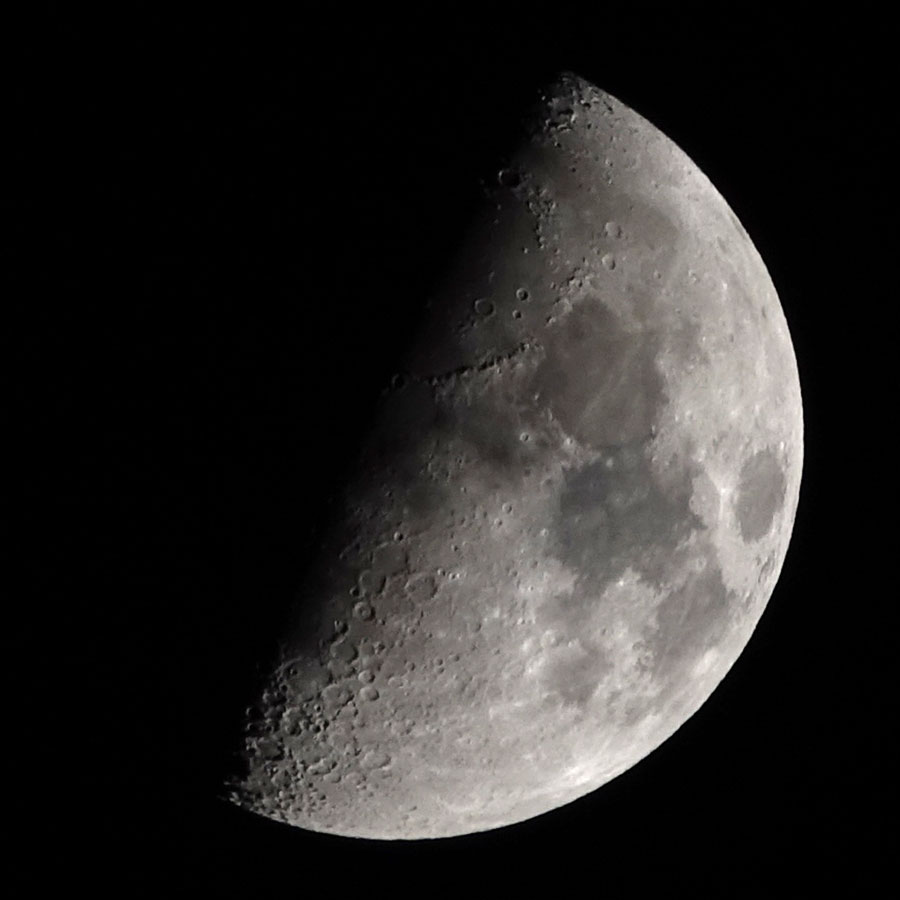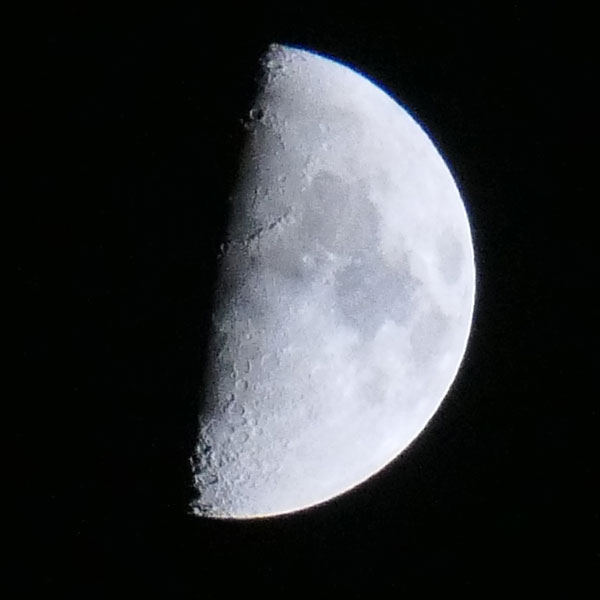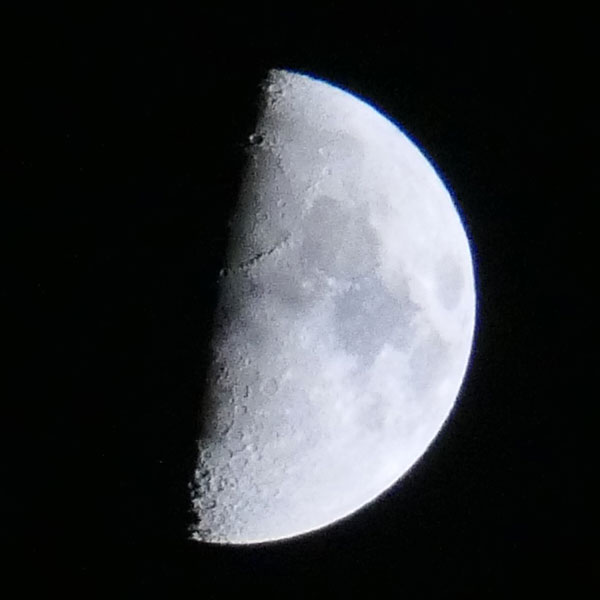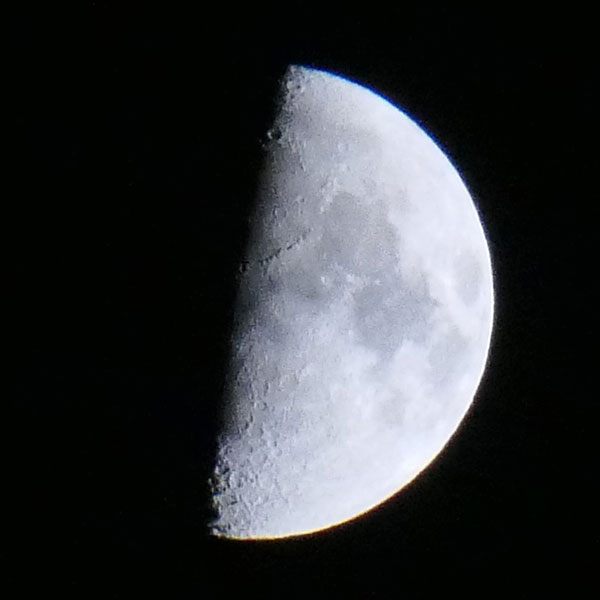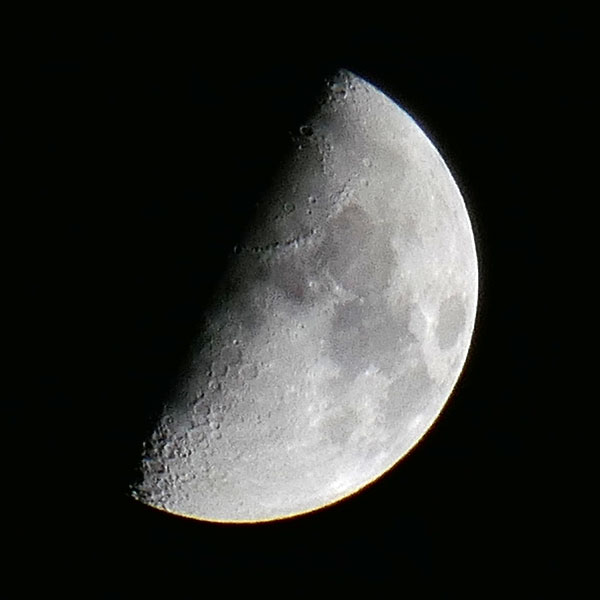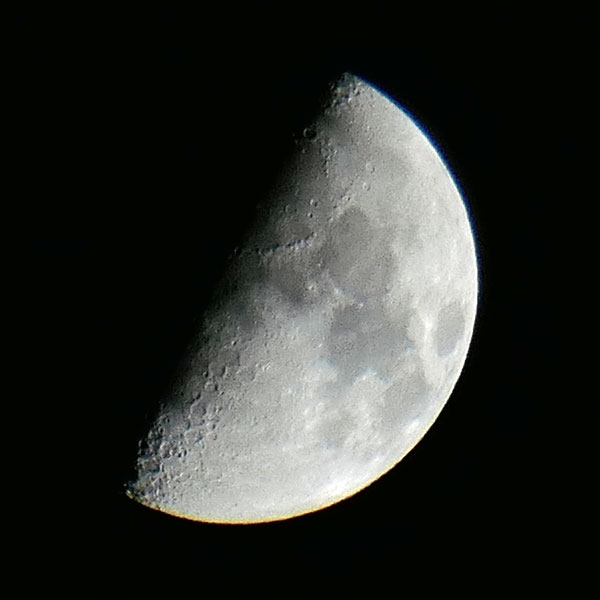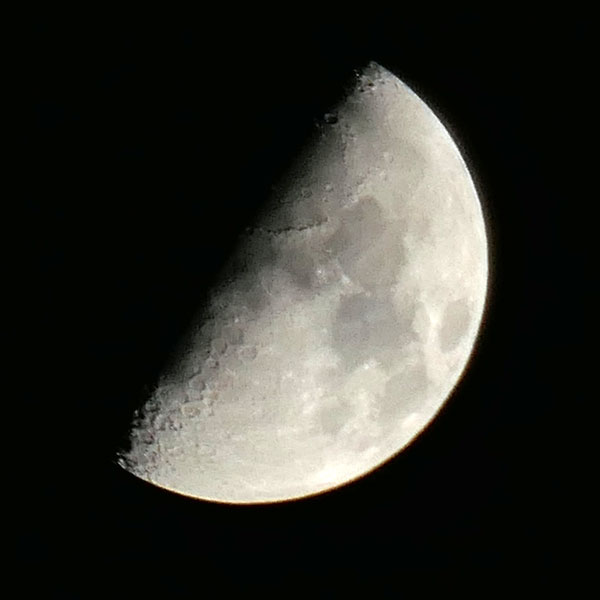Photos of the Moon with RX10 M3 and TZ202 - January 14, 2019
Sony RX10 M3, January 14, 2019 | Panasonic TZ202, January 14, 2019 | Comparison Sony RX10 M3 versus Panasonic TZ202 | Conclusions
On this page I present photos of the half moon taken on January 14, 2019 using the Sony RX10 M3 and the Panasonic TZ202, both with the optical zoom.
Sony RX10 M3, January 14, 2019
The following photos were taken freehand with manual exposure (M mode) and ISO 800 as well as ISO 100. Most photos were shot at a focal length of 600 mm (equiv.), some inadvertently at one of 500 mm. When pixel-peeping, the latter seemed a tiny bit sharper to me (for whatever reason)...
The differences between ISO 800 and 100 as well as the different focal lengths are visible when you open the originals (double size = 1:1 version) and resize them to 200% or 300%.
All the photos were cropped. Clicking a photo opens this in double size (1:1) in a new window or tab.
*) In my opinion the sharpest photo, probably because the distance wa set most exactly... Here I repeat both variants, more or too(?) strongly sharpened:
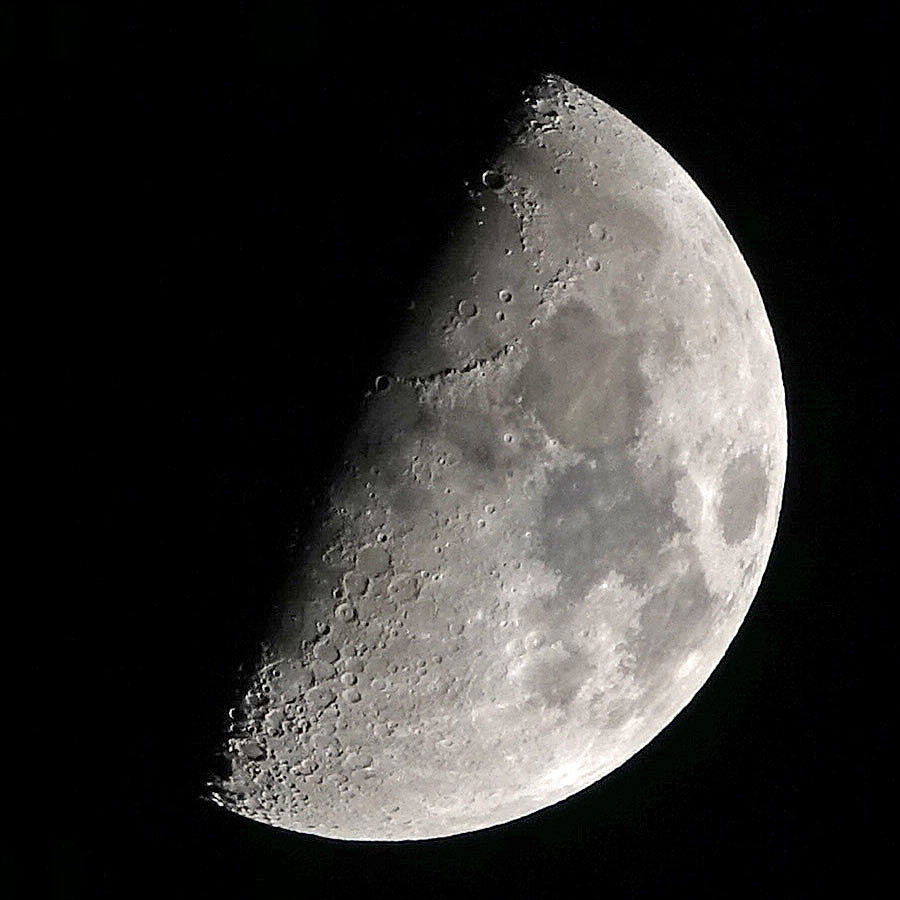 |
 |
|
600 mm, ISO 100, (too?) strongly sharpened* |
600 mm, ISO 100, differently processed, (too?) strongly sharpened* |
Panasonic TZ202, January 14, 2019
The following photos were taken freehand with manual exposure (M mode), ISO 1600 or 125, and a focal length of 360 mm (equivalent). I took these photos with my default settings, which I normally use. Because the results are disappointing, I reset the default settings to "zero" and took further photos with ISO 125.
The differences between ISO 1600 and 125 as well as between the basic settings become more visible when you look at the originals (double size = 1:1 versions) and enlarge them to 200% or 300%.
All photos are cropped. Clicking on the photos shows them in double size (1:1) in a new window.
Comparison Sony RX10 M3 versus Panasonic TZ202
A comparison between the two cameras is actually not possible. The difference is too big regarding the longest focal length, as well as the quality of the image processing. Even changing the basic settings could really improve this in favor of the Panasonic TZ202. For me, the conclusion is that only the Sony RX10 M3 is suitable for moon shots.
For an exact evaluation of this question, the large versions (1:1) have to be considered! All photos are cropped to the same size. Clicking the photos shows them in double size (1:1 versions) in a new window.
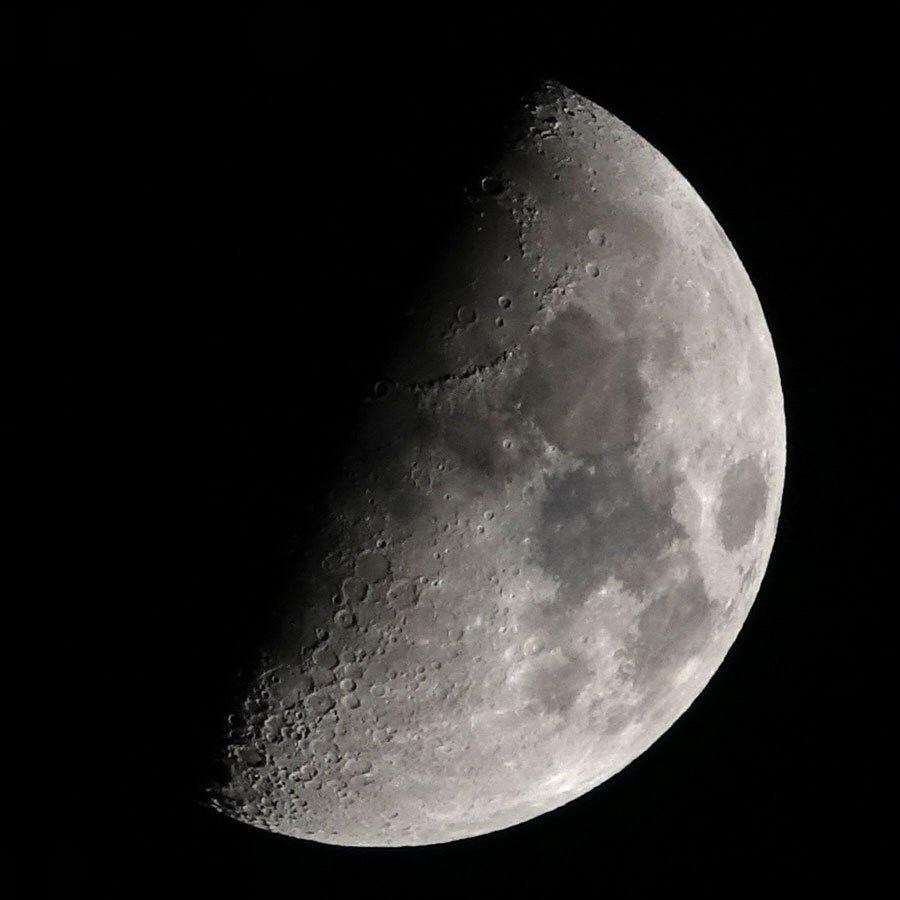 |
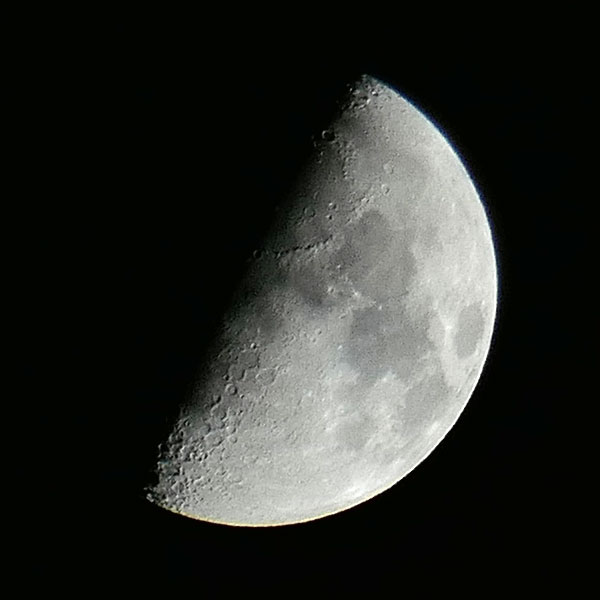 |
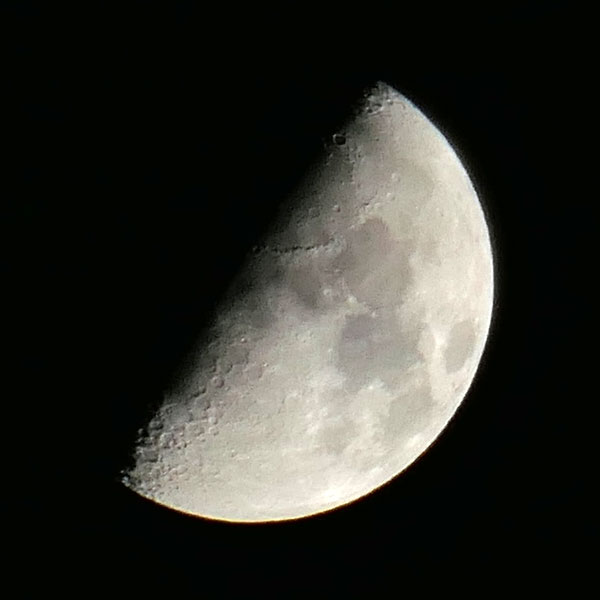 |
||
RX10 M3, 600 mm, ISO 100 |
|
Panasonic TZ202, 360 mm, ISO 125 |
Panasonic TZ202, 360 mm, ISO 125, default settings |
Conclusions
These photo series from January 14, 2019 with the Sony RX10 M3 show as well that you can take nice photos of the moon with this camera. ISO 100 and manual exposure improved a lot. But the camera should be placed on a tripod and released with a remote shutter release next time!
However, the results do not come close to those taken with a telescope, the fine details are simply missing! I was able to identify craters with a diameter of about 20 km on the photos, on photos taken with a telescope I can get down to half of this and even less.
Unfortunately, the Panasonic TZ202 cannot compete with the Sony RX10 M3 in any way...
| 04.05.2019 |

